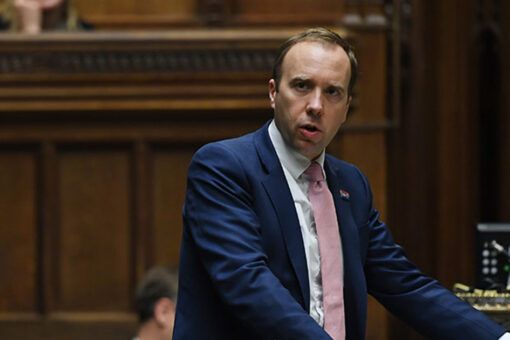Health Secretary agrees need for more data on suicides by terminally ill people under ban on assisted dying

Dignity in Dying warns of possible increase in suicides by terminally ill people, with Dignitas now impossible due to lockdown and travel bans
The Secretary of State for Health and Social Care, the Rt Hon Matt Hancock MP, today (Tuesday 12 January 2021) confirmed the need for more data on suicides of terminally ill people under the UK’s current laws on assisted dying. The Health Secretary said he would consider working with coroners from across the country and with the Office for National Statistics (ONS) to this end, at the suggestion of the Rt Hon Andrew Mitchell MP, co-chair of the All Party Parliamentary Group on Choice at the End of Life.
Mr Mitchell thanked the Health Secretary for taking an interest in assisted dying. On 5 November 2020 Mr Hancock spoke in the Commons about the need for more evidence on the impact of the UK’s blanket ban on assisted dying, saying Government has a role to play in gathering such data and acknowledging the changing views in Parliament, in the medical profession and around the world on the subject.
Today Mr Mitchell highlighted that perhaps as many as 10% of suicides in England are by terminally ill people, and raised the case of a terminally ill man who resorted to jumping in front of a heavy goods vehicle on the North Circular last year. Mr Hancock acknowledged that “we want to see the highest possible standard of patient safety and of course reduce the number of suicides. It is important in pursuing that to have as much information and evidence as possible.”
This comes weeks after the UK’s third lockdown was announced, with Switzerland among several countries now banning arrivals from the UK in light of rising coronavirus cases, making travel abroad for an assisted death impossible for terminally ill Brits.
Andrew Mitchell MP said:
“I thank the Health Secretary for showing leadership on the vitally important issue of assisted dying. It is essential that we examine the full impact of the current law, including the drastic measures dying people are forced to resort to in order to control their deaths. I hope the Health Secretary will take up my suggestion to work with coroners from across the country, and with the Office of National Statistics, to better understand the true extent of these tragedies. Evidence is of paramount importance in this debate; something which colleagues of all views can surely agree upon.”
Sarah Wootton, Chief Executive of Dignity in Dying, said:
“The Health Secretary is right to emphasise the importance of patient safety in relation to the UK’s current law on assisted dying. Mounting evidence shows that the law is unsafe and unfit for purpose, and now that Dignitas is no longer an option for dying Brits, there is a real possibility that we could see more people resorting to ending their own lives in traumatic ways. Parliament must have an accurate and up-to-date picture of the full impact of the ban on assisted dying, and that should include gathering evidence on the unimaginable choices terminally ill people are having to contemplate in the current vacuum of choice and control.
“There is growing recognition across Parliament that the ban on assisted dying does not work; that it merely drives the practice overseas and underground with disastrous consequences for British families. With New Zealand recently legalising assisted dying, Spain and Austria set to follow suit over the next year, and Ireland currently considering an assisted dying bill, it is more incumbent than ever on the UK to grasp this nettle and review our own outdated laws.”
***ENDS***
For more information or interview requests, please call 07725 433 025 or email ellie.ball@dignityindying.org.uk.